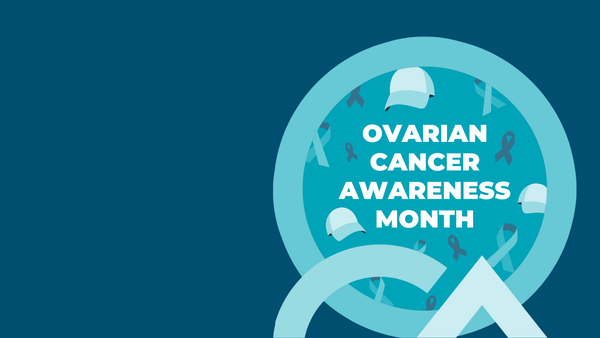
Teal Together for Ovarian Cancer Awareness Month🎗️
Ovarian Cancer is the deadliest female cancer in Australia where 4 women are diagnosed each day, with statistics 📊 showing only 1 in 4 survive longer than 5 years.
What's even more alarming ⚠️ is only 31% of Australians are aware that ovarian cancer holds the lowest survival rate among female cancers in the country. This disease suffers from a lack of awareness and progress. We need to spread 📣 this information across the country for every Australian to know and understand the disease.
____________________________________________________________________________________________________
What is

Ovarian cancer is a growth of cells that forms in the ovaries and quickly multiply to invade and destroy healthy body tissue.
What are the types of ovarian cancer?
The ovaries are made up of 3 main kinds of cells – epithelial cells, stromal cells and germ cells. Each of these cells can develop into a different type of tumor.
Ovarian cancer types include:
Epithelial ovarian cancer: This type is most common. It includes several sub-types including serous carcinoma and mucinous carcinoma.
Stromal tumors: These are rare tumors and are usually diagnosed at an earlier stage compared to other ovarian cancers.
Germ cell tumors: These tumors are also rare and they tend to occur at a younger age.
What are the symptoms?
Ovarian cancer is known as the “silent killer” 🤫 because it manifests subtle symptoms that can easily be mistaken for common conditions. It's important you see your GP if you have any of the symptoms listed below that persist, as there is NO early detection test.
The most reported symptoms are:
○ Fatigue 😴
○ Lower back pain
○ Quickly feeling full
○ Abdominal bloating 🎈
○ Indigestion or nausea 🤢
○ Abdominal or pelvic pain
○ Increased need to urinate 🚻
○ Unexplained weight gain or loss
○ Pain during sex or bleeding afterwards
○ Changes in bowel habits, such as constipation 🚽
○ Bleeding after menopause or in-between periods 🩸
Who is most at risk?
A woman's likelihood of developing ovarian cancer rises with age 📈, with most diagnoses in Australia occurring in women aged 60 and above. As of 2022, the average woman faces a 1 in 84 chance of being diagnosed with ovarian cancer by her 85th birthday, according to Cancer Australia . Whilst some cases can be linked to a genetic component, the causes of ovarian cancer in most instances remain unknown.
____________________________________________________________________________________________________


